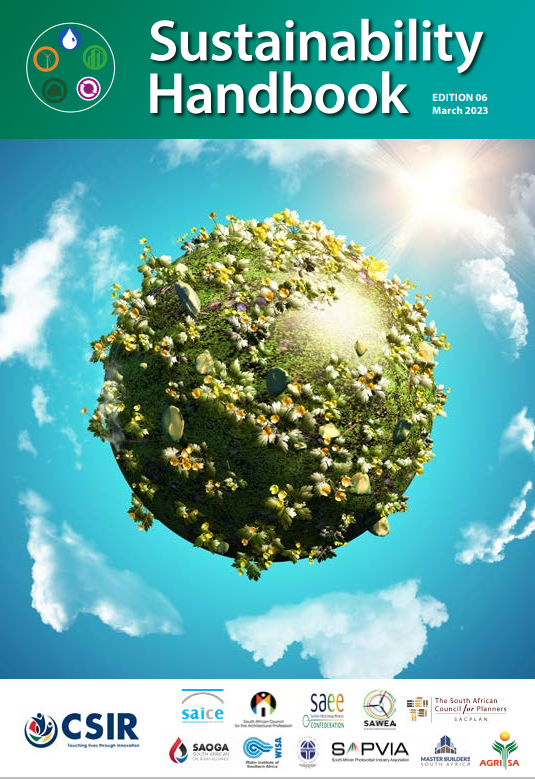Sustainability Handbook Vol 6

01 March 2023
Peta de Jager
English
Guide/ Handbook
Council for Scientific and Industrial Research
Africa
The Sustainability Handbook Vol 6 focuses on the imperative need for cities to prioritise environmental sustainability, particularly in light of the looming impacts of climate change. Emphasising the transition toward sustainable cities, the handbook underscores the significance of digitisation in the built environment to gather essential data for measuring, tracking, and enhancing building performance. This entails measuring efficiency in various aspects such as energy usage, water consumption, waste minimisation, and transportation carbon footprint. The handbook aligns with global efforts to define sustainable cities as resilient entities capable of adapting to and mitigating social, economic, and environmental changes. It highlights South Africa's commitment to sustainable development through initiatives like the National Framework for Sustainable Development and the adoption of green building standards to address climate change and meet net-zero carbon commitments by 2030 and 2050.
The handbook also delves into the necessity of real-time monitoring and evaluation of building performance in response to the evolving challenges posed by climate change, pandemics, socioeconomic factors, and technological advancements. It advocates for the adoption of building information modelling (BIM) standards as a means to collect, collate, and analyse building performance data, facilitating informed decision-making and improving the sustainability of the built environment. The handbook emphasises the importance of research, case studies, and industry collaboration in driving sustainable practises, enriching the sustainability discourse in South Africa, and advancing the common goal of enhancing the built environment for present and future generations.
Abstract based directly on source.


Comments